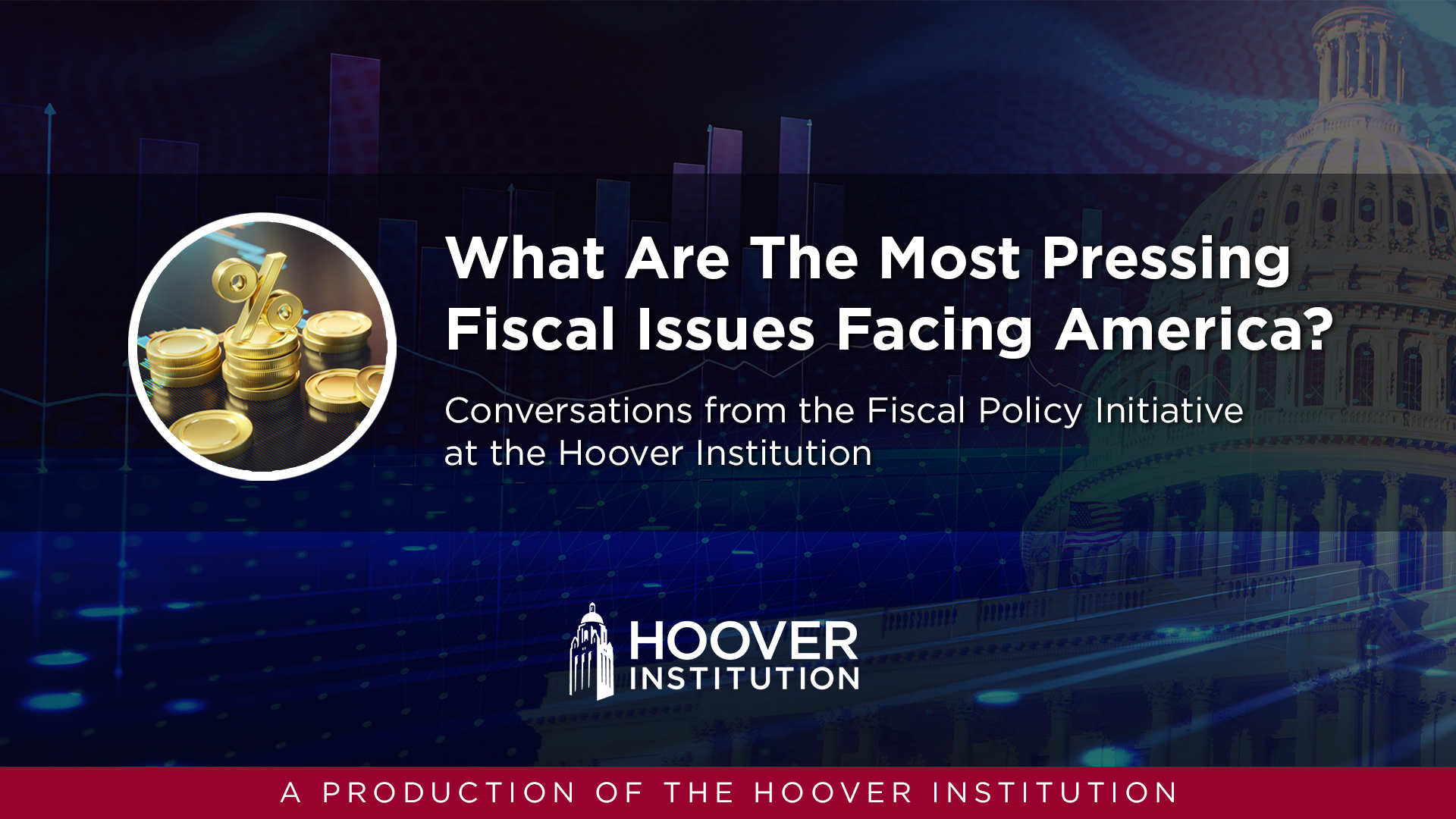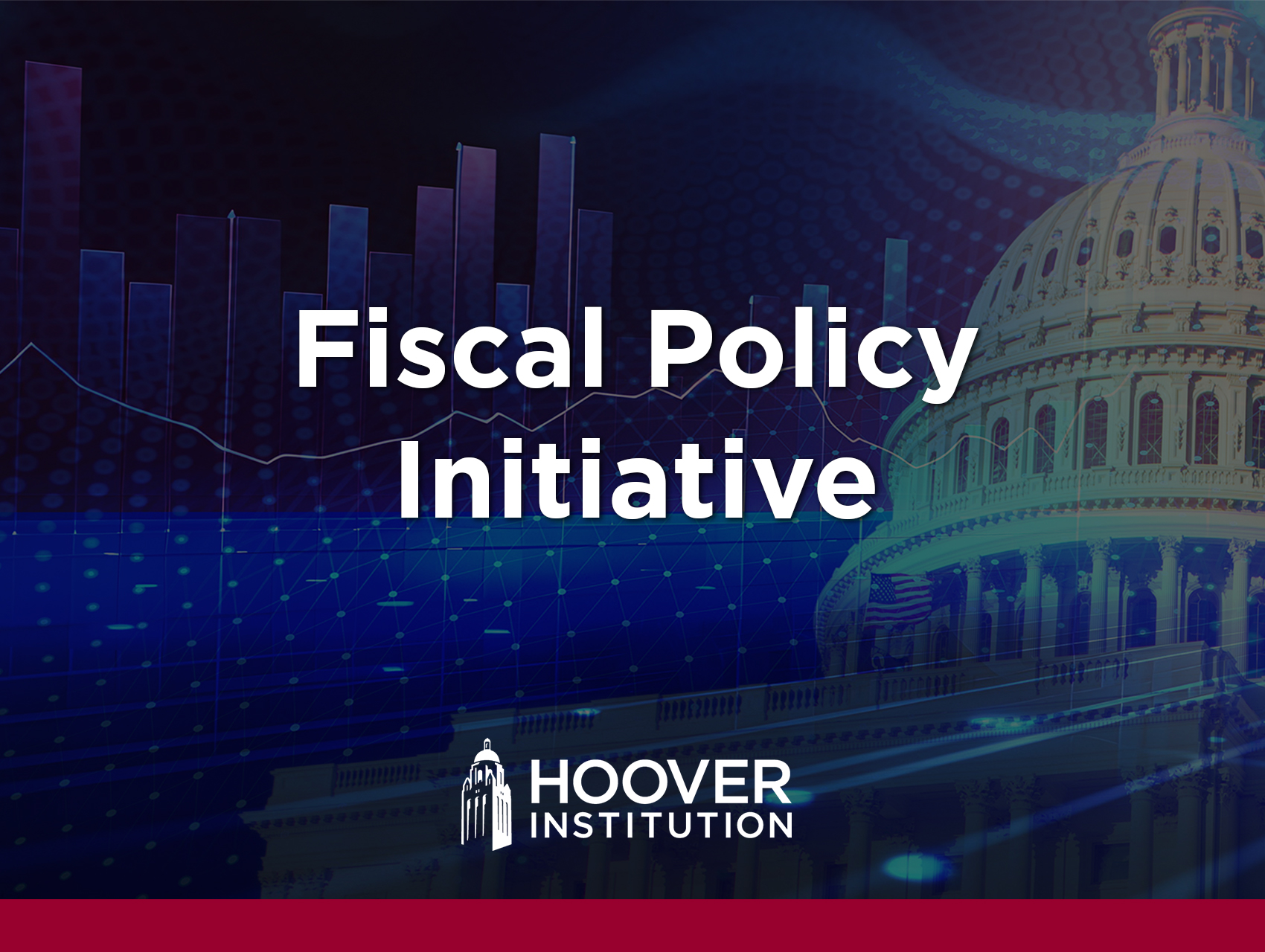- Answering Challenges to Advanced Economies
America’s most pressing fiscal challenges include unsustainable deficits, impending insolvency of Social Security and Medicare trust funds, and rising interest payments that already exceed the military budget. Participants of the Hoover Institution’s Fiscal Policy Initiative explain that interest payments could consume up to 40% of U.S. revenues under realistic scenarios, with experts agreeing the question is not whether a fiscal crisis will occur, but when and how severe it will be. The Fiscal Policy Initiative aims to provide a roadmap for sustainable fiscal policy that addresses these critical issues before catastrophe strikes.
Learn more about the launch of the Hoover Institution’s Fiscal Policy Initiative.
WATCH THE VIDEO
>> Joshua Rauh: In March 2025, the Hoover Institution's Fiscal Policy Initiative hosted a conference of budget experts and economists. There was widespread agreement, tthe question is not whether the U.S will face a fiscal crisis, but when and how severe. We asked each of the participants the same what are the most pressing fiscal challenges facing the United States today?
>> Marc Goldwein: The U.S has many pressing fiscal challenges.
>> John Cochrane: The fiscal challenge for the US is obviously we're running big deficits. We're not taking in as much as we're spending.
>> Bruce Meyer: The high deficits.
>> Hanno Lustig: The persistent primary deficits.
>> Valerie Ramey: The US has to do something about deficits.
>> John Cochrane: The unheralded part of that though is, is the long run problem, which is what I would focus on.
There's a lot of attention on this year's deficits, next year's deficits, and so forth. But really the fact that we have no plan to pay for Social Security and Medicare over decades, no plan to return to the historically standard pattern of taking in a little more money than we spend in good times and thereby paying back debt, that long run problem is the more worrisome problem because that's what limits our capacity to borrow.
>> Alejandro Werner: The most important fiscal challenge that the US Faces, it's basically Social Security and.
>> Michael Boskin: Social expenditure, the impending insolvency of the Social Security and Medicare trust funds.
>> Marc Goldwein: We also need to deal with our major trust funds. Social Security, Medicare, highways, they're all running out of money.
And if we don't do something soon, we're either going to face deep across the board benefit cuts or, or debt that is rising just unsustainably fast over time.
>> Scott Winship: I'd say the biggest challenge is the combination of the entitlement spending that we have primarily for senior citizens, in combination with the fact of low fertility in the United States today.
>> Emil Verner: Slowing population growth, so Adverse Demographic Trends.
>> Paul Schmelzing: I think the most pressing issue is to get economic growth growing again at long run historical levels.
>> Joshua Rauh: The interest on the federal debt exceeds our military budget. The interest on the federal debt amounted to 18% of our revenues in 2024.
It's scheduled to go up to 22% in 2034. But that is only under very optimistic assumptions about the interest rates we will pay on this debt as that debt continues to accumulate. If interest rates are just 1 percentage point higher than projected, we will see interest payments consuming 30% of U.S. revenues.
And if you take off the table revenues from Social Security and other things where the money is already committed, it looks more like 40%. This is consistent with a fiscal crisis and the US is on a path to catastrophe. If we do not fix this, Congress must address the budget deficit immediately.
>> Marc Goldwein: In the immediate term. The focus right now is what to do about all of these expiring tax cuts.
>> Rebecca Lester: Most pressing fiscal challenge I think of when I think about what's facing our country is really what's going to happen with taxation.
>> Kyle Pmerleau: The individual income tax cuts passed in 2017 are scheduled to expire in 2025.
>> Marc Goldwein: Because if we extend them without offsets, that's up to 5 trillion more added to the debt over the next decade.
>> Bruce Meyer: So that's all to say that we have these, face these big challenges, and democracies in general have not been good at preparing in advance for these things.
>> Joshua Rauh: Our role at the Fiscal Policy Initiative, the Hoover Institution, is to provide a roadmap to return to a sustainable fiscal policy to avoid catastrophe and to put us on a path to long term economic growth.
Featuring:
- Joshua Rauh, Hoover Institution
- John Cochrane, Hoover Institution
- Marc Goldwein, Committee for a Responsible Federal Budget
- Bruce Meyer, University of Chicago
- Hanno Lustig, Stanford University
- Valerie Ramey, Hoover Institution
- Alejandro Werner, Georgetown University
- Michael Boskin, Hoover Institution
- Scott Winship, American Enterprise Institution
- Emil Verner, MIT
- Paul Schmelzing, Boston College
- Rebecca Lester, Stanford University
- Kyle Pomerleau, American Enterprise Institution


















